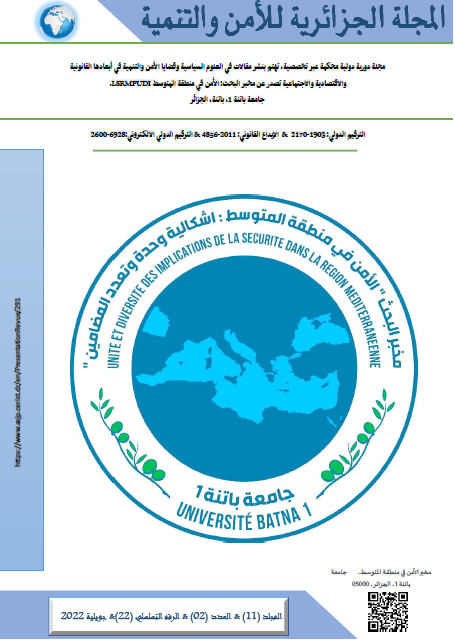الدراسات الإفريقية في العلوم الاجتماعية(نظرة نقدية في طرق البحث والتدريس)
DOI :
https://doi.org/10.59791/arsd.v11i2.3178Mots-clés :
الدراسات الأفريقية, طرق البحث والتدريس, النظرة النقديةRésumé
تتناول هذه الورقة موضوع الدراسات الافريقية في العلوم الاجتماعية، حيث تسعى الى الكشف عن طرق البحث والتدريس التي تعتمدها الأوساط الأكاديمية في تعاملها مع تخصص الدراسات الافريقية في جميع التخصصات، مبينة الأسباب والظروف التي حالة دون تحصيل معرفة افريقية تتلاءم مع البيئة الأفريقية ، مؤكدة على ضرورة البحث عن افريقيا بالصورة التي تساهم في حل مشكلاتها المتعددة الأبعاد، كما تخصص هذه الورقة جزءا للحديث عن ظاهرة المشاركة المجتمعية وضرورة تطويرها كآلية جديدة من أجل انتاج معرفة ذات صلة بالواقع الإفريقي وذات أهمية واسعة بالنسبة للمجتمع ككل، بالإضافة إلى ضرورة تهيئة مؤسسات التعليم العالي لخدمة المجتمع الذي توجد فيه وتقويته من خلال آليات جديدة تتصف في معظمها بالرؤية النقدية للمعارف الوافدة قصد الالتزام بخلق رأس مال اجتماعي يتميز بالوعي المعرفي والإسهام بإيجابية في المجتمعات المحلية والوطنية والعالمية ما يعزز الإحساس بالمسؤولية الاجتماعية لدى الطلاب وبالتالي تعميم المنفعة في جو تميزه الخصوصية فيما يسمى بأفرقة المعرفة الاجتماعية. Abstact: This article deals with the subject of African studies in the social sciences, as it seeks to reveal the research and teaching methods adopted by the academic community in the face of the specialization of African studies in all disciplines, indicating the reasons and circumstances that prevent the acquisition of African knowledge compatible with the African environment, highlighting the need for research on Africa in such a way as to contribute to solving its multidimensional problems. This article also devotes a part to talking about the phenomenon of community participation and of the need to develop it as such. a new mechanism to produce knowledge related to the African reality and of great importance for society as a whole, in addition to the need to prepare higher education institutions to serve the community that finds itself and is strengthened in through new mechanisms that are primarily characterized by a critical view of incoming knowledge in order to engage in building social capital characterized by awareness of knowledge and positive contribution to local, national and global communities, which reinforces meaning of social responsibility among students and thus distributes the benefits in an atmosphere characterized by privacy in the so-called the Africanization of social knowledge.
